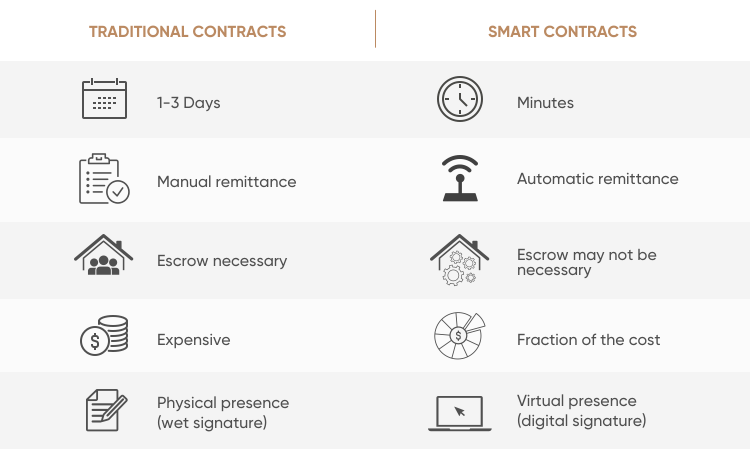
Smart Contracts: Definition and Applications
Definition
A smart contract is a self-executing contract with the terms of the agreement between buyer and seller being directly written into lines of code. The code and the agreements contained therein exist across a distributed, decentralized blockchain network. The code controls the execution of the contract, eliminating the need for intermediaries and reducing the risk of fraud or tampering.
Features of Smart Contracts
- Autonomous: Smart contracts execute automatically once certain conditions are met, without the need for human intervention.
- Immutable: Once deployed on the blockchain, smart contracts cannot be altered or tampered with, ensuring the integrity and reliability of the agreement.
- Trustless: Smart contracts establish trust between parties without the need for a central authority or third-party verification.
- Transparent: The terms of smart contracts are publicly accessible on the blockchain, providing transparency and accountability.
Applications of Smart Contracts
Smart contracts find applications in a wide range of industries, including:
Finance:
- Automated payments: Smart contracts can be used to automate regular payments, such as salaries or loan repayments.
- Escrow services: Smart contracts can securely hold and release funds in escrow, guaranteeing fair and transparent transactions.
- Insurance: Smart contracts can automate insurance claims processing, reducing delays and fraud.
Supply Chain Management:
- Traceability and provenance: Smart contracts can track the movement of goods throughout the supply chain, ensuring product authenticity and provenance.
- Automated ordering and inventory management: Smart contracts can automate the reordering of supplies when inventory falls below a certain threshold.
Real Estate:
- Title registration: Smart contracts can simplify and secure title registration, reducing the risk of fraud and delays.
- Property rentals: Smart contracts can automate rental payments, contract renewal, and property maintenance.
Healthcare:
- Patient records management: Smart contracts can securely store and share patient records, improving patient accessibility and privacy.
- Drug traceability: Smart contracts can track the distribution and usage of medications, ensuring patient safety.
Other Applications:
- Identity management: Smart contracts can verify and authenticate identities, reducing the risk of identity theft and fraud.
- Voting systems: Smart contracts can be used to create secure and transparent voting systems, reducing the risk of manipulation.
- Non-profit management: Smart contracts can help non-profit organizations manage donations, track expenses, and demonstrate transparency.
Benefits of Smart Contracts
- Cost and time savings: By eliminating intermediaries, smart contracts reduce transaction costs and the time required to execute contracts.
- Increased efficiency: Smart contracts automate processes, improving efficiency and reducing errors.
- Enhanced security: The immutable and decentralized nature of smart contracts enhances security and reduces the risk of fraud.
- Greater transparency: Smart contracts make the terms of agreements publicly accessible, increasing accountability and trust.
- Improved compliance: Smart contracts can be programmed to comply with specific regulations or standards, ensuring compliance with legal and ethical requirements.
Challenges and Limitations
While smart contracts offer significant benefits, there are also some challenges and limitations:
- Complexity: Developing and deploying smart contracts can be technically complex, requiring specialized knowledge.
- Vulnerabilities: Smart contracts can be vulnerable to security vulnerabilities if not properly designed and audited.
- Limited flexibility: Once deployed, smart contracts cannot be easily modified, which can be a disadvantage in dynamic business environments.
- Legal uncertainty: The legal implications of smart contracts are still evolving in some jurisdictions.
Conclusion
Smart contracts have the potential to revolutionize various industries by automating processes, enhancing security, and increasing transparency. While there are challenges to address, the benefits of smart contracts are undeniable. As the technology matures and legal frameworks evolve, smart contracts are poised to play a significant role in driving innovation and improving efficiency across a wide range of domains.


